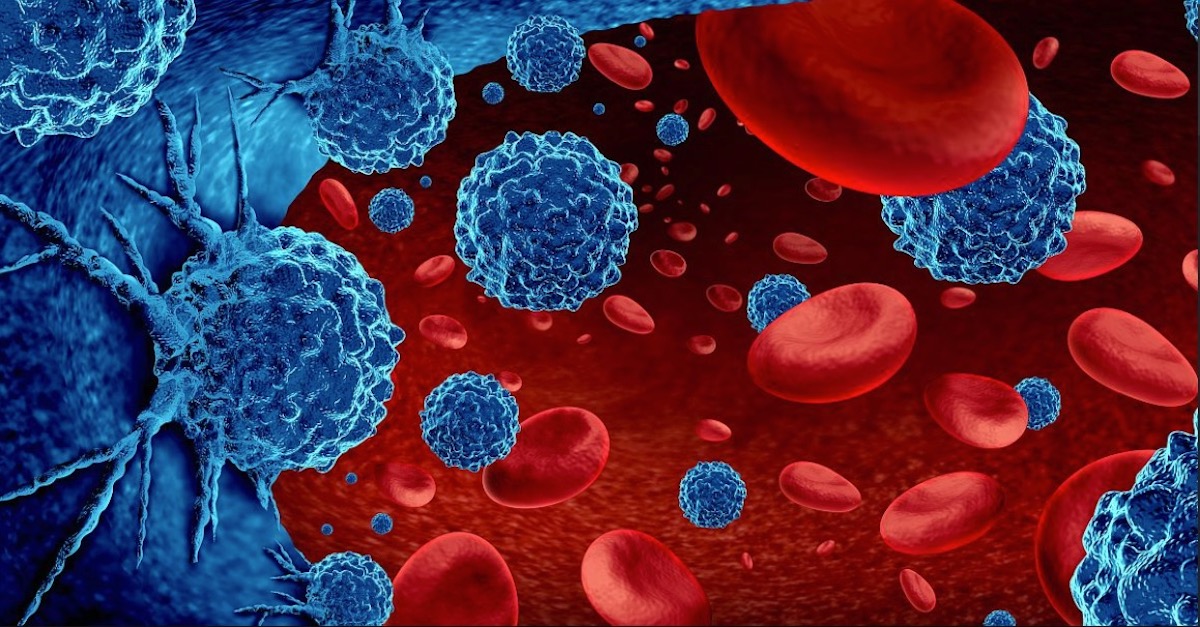Bone marrow cancer, also known as multiple myeloma, is a type of cancer that affects the plasma cells in the bone marrow. These abnormal cells multiply uncontrollably, interfering with the production of blood cells. It is more commonly diagnosed in older adults but can affect people of all ages. Multiple myeloma accounts for approximately 1.8% of all new cancer cases in the United States. It is estimated that around 34,920 new cases of multiple myeloma will be diagnosed in the US in 2023.

What Is Bone Marrow Cancer?
This type of cancer affects the plasma cells in the bone marrow. The bone marrow is a spongy tissue found inside our bones, responsible for producing different types of blood cells, including red blood cells, white blood cells, and platelets. In this type of cancer, abnormal plasma cells multiply uncontrollably. Leading to the formation of tumors in the bone marrow and interfering with the normal production of blood cells.
Causes & Types of Bone Marrow Cancer
The exact cause of multiple myeloma is not yet fully understood. However, certain factors have been identified as potential contributors to its development. These factors include genetic mutations, exposure to radiation or certain chemicals, a weakened immune system, and a family history of the disease. There are several types of bone marrow cancer, including multiple myeloma, which is the most common. As well as plasmacytoma, monoclonal gammopathy of undetermined significance (MGUS), and Waldenström macroglobulinemia. Each type has its own characteristics and may require different treatment approaches.
Who Is At Risk?
It can affect people of all ages, but it is more commonly diagnosed in older adults. It is slightly more prevalent in men than women. While the exact cause is not known, certain risk factors increase the likelihood of developing the disease. These include advanced age, a family history of the disease, exposure to radiation or certain chemicals, and a weakened immune system.
Symptoms of Bone Marrow Cancer
Symptoms can vary from person to person and depend on the stage of the disease. Common symptoms include bone pain, especially in the back or ribs, fatigue, weakness, frequent infections, unexplained weight loss, and excessive thirst or urination. Some individuals may also experience nausea, constipation, or confusion. We’ve created an overview to give you a clear picture of what symptoms are common in each type.
| Type of Bone Marrow Cancer | Common Symptoms |
|---|---|
| Multiple Myeloma | Bone pain, fatigue, weakness, frequent infections |
| Plasmacytoma | Bone pain, fractures, anemia, kidney problems |
| Monoclonal Gammopathy of Undetermined Significance (MGUS) | Often asymptomatic, detected through blood tests |
| Waldenström Macroglobulinemia | Fatigue, weakness, weight loss, anemia, vision problems |
Please note that this table provides a general overview, and symptoms may vary from person to person. It is always important to consult with a healthcare professional for an accurate diagnosis and appropriate medical advice.
What Are Complications of Bone Marrow Cancer?
Cancer in the bone marrow can lead to various complications due to the disruption of normal blood cell production. These complications can include anemia, which is a decrease in red blood cells causing fatigue and shortness of breath, increased susceptibility to infections due to low white blood cell count, and problems with blood clotting due to a decrease in platelets. Bone damage is another common complication of this type of cancer. The abnormal plasma cells can cause the bones to become weak and more susceptible to fractures. Additionally, it can affect other organs in the body, such as the kidneys, leading to kidney problems.
How Is It Diagnosed?
Diagnosing bone marrow cancer involves several steps. If a doctor suspects bone marrow cancer based on the symptoms and medical history of the patient, they may perform a physical examination and order specific tests. These tests may include blood tests to check for abnormal protein levels, bone marrow biopsy to examine the cells in the bone marrow, and imaging tests such as X-rays, MRI, or CT scans to identify bone lesions or tumors.
Treatment Options for Bone Marrow Cancer
The treatment of bone marrow cancer depends on various factors, including the individual’s age, overall health, and the stage of the disease. Treatment options may include chemotherapy, targeted therapy, immunotherapy, stem cell transplantation, radiation therapy, and supportive care to manage symptoms and complications. The goal of treatment is to control the disease, alleviate symptoms, and improve the quality of life.
Is This Type of Cancer Preventable?
Currently, there are no known strategies to prevent this type of cancer. However, certain lifestyle choices may help reduce the risk of developing the disease. These include maintaining a healthy weight, engaging in regular physical activity, avoiding exposure to harmful chemicals and radiation when possible, and following a balanced diet rich in fruits, vegetables, and whole grains.
There are so many ways to treat cancer these days, the above-mentioned options are just a few examples. Sometimes they are combined, but it can also happen that these treatments do not help (anymore), so other options should be considered. That’s why it’s essential to do your own extensive online research and stay up to date about new treatments. Have you already been diagnosed with multiple myeloma but aren’t satisfied with your treatment plan? Getting a second opinion in another hospital or oncology center is always smart. Continue your search for more information about cancer & its treatment options here:

